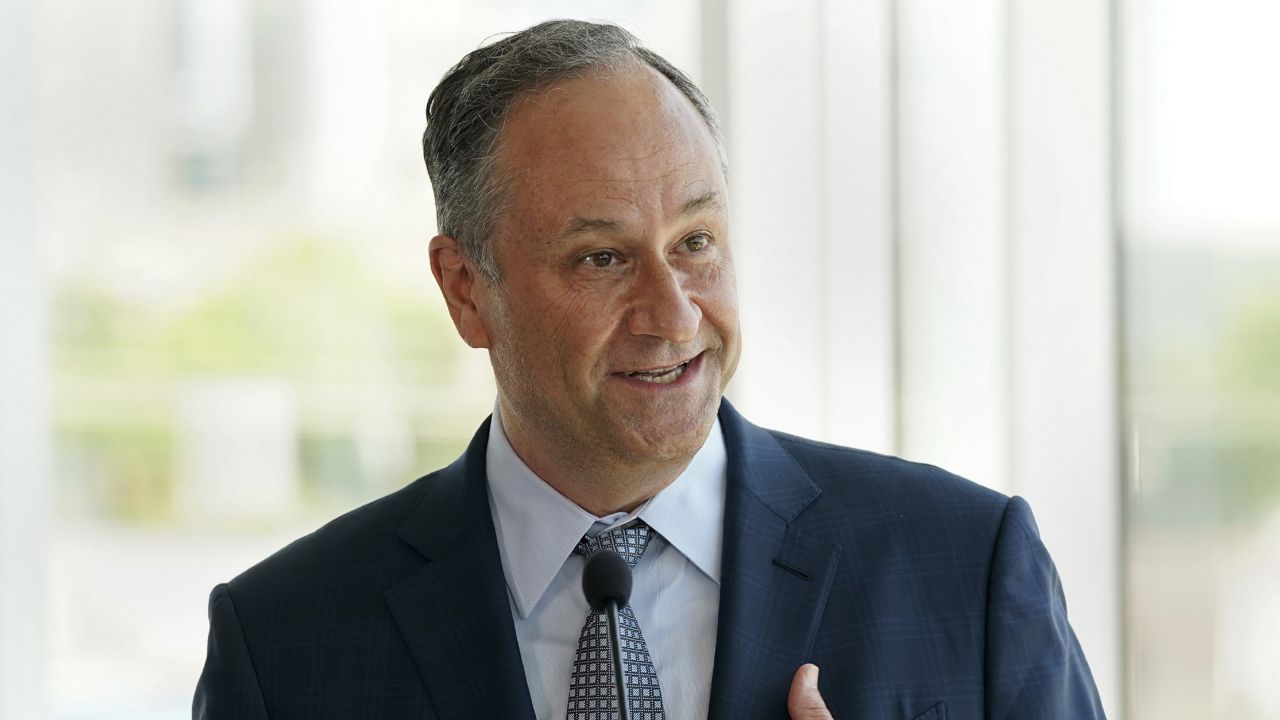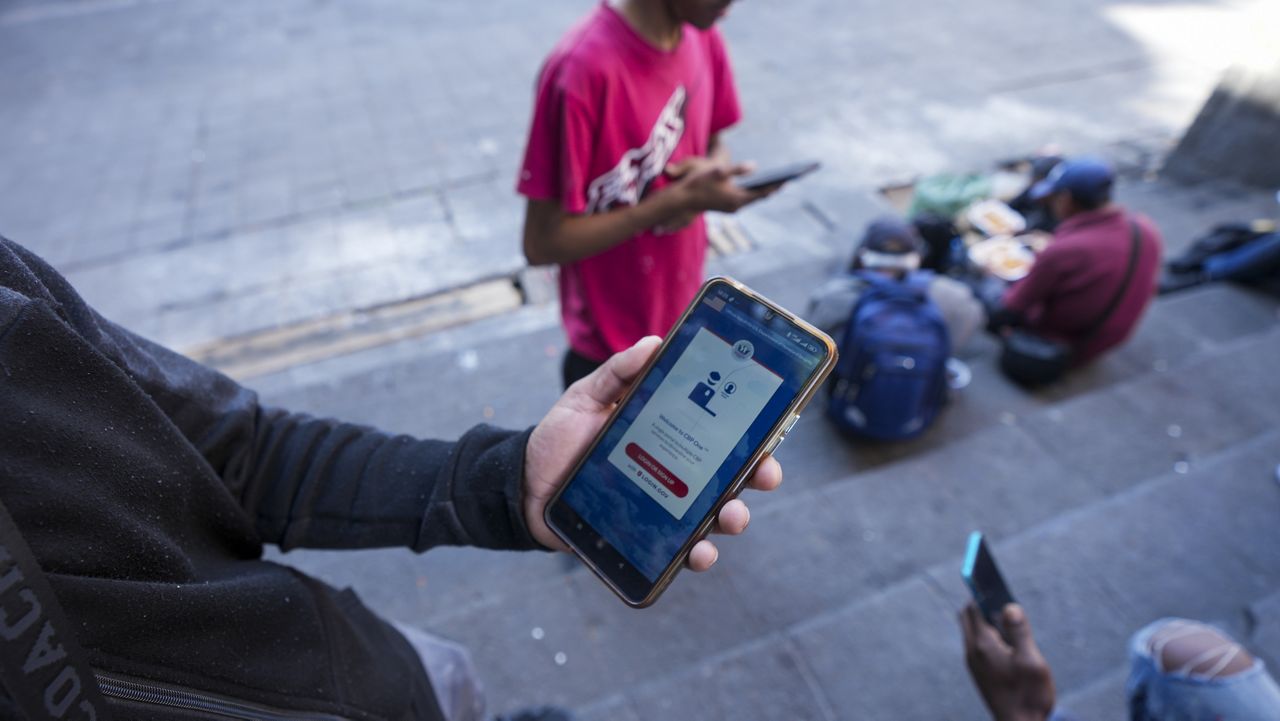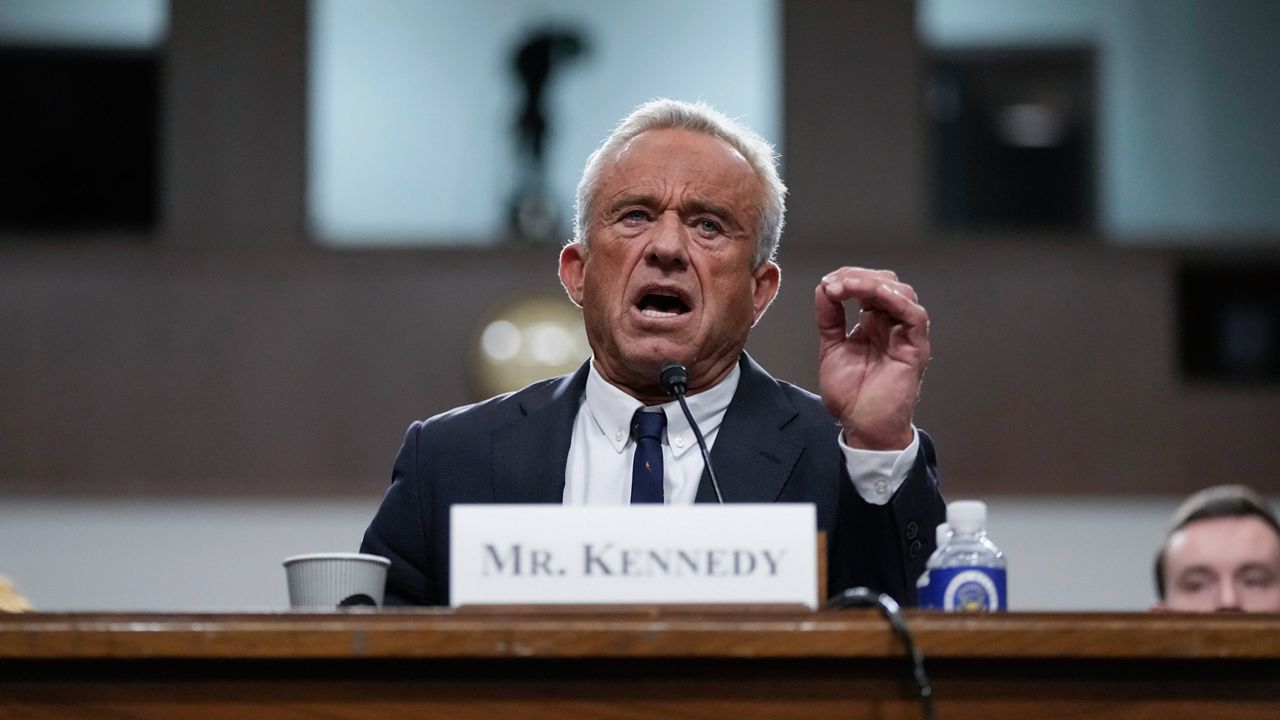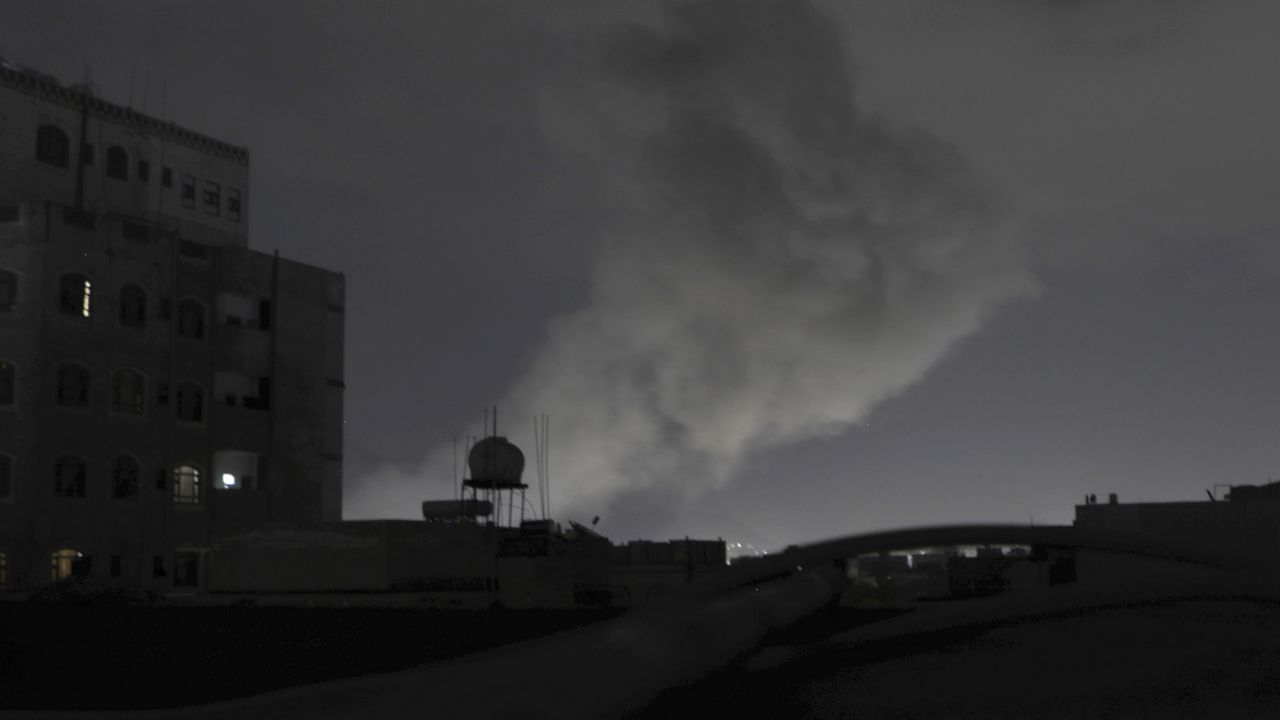Second gentleman Doug Emhoff and Education Secretary Miguel Cardona visited a back-to-school vaccination clinic in Topeka, Kansas, on Monday amid growing concerns over how the highly-transmissible delta variant will impact the upcoming school year.
Emhoff and Cardona chatted with high school and college students who have helped vaccinate their state over the course of the pandemic, and both thanked the young adults for their continued focus on community health.
“You have an opportunity to speak on why it matters to you, not only to be in the classroom, to be vaccinated, but also to be on the field, or on the court,” Cardona said to a group of student athletes from Topeka High School. “Making sure you’re vaccinated, making sure you’re there for your team so you’re not quarantined. I’d love to hear why you felt it was important to get vaccinated, and what message you have to other athletes or other students who are not sure whether or not they want to do it.”
“We need you now,” Cardona later added. “We need our student athletes to communicate the message that [the vaccine is] safe, number one. We wouldn't do anything that wasn’t safe.”
One student said she had already missed out on a season each of softball and basketball due to the ongoing pandemic, adding: “I'm just encouraging everyone else, if you don't want another season taken, we need to get vaccinated."
Emhoff in turn asked if there was any message the students would like him to deliver to his wife, Vice President Kamala Harris, when they have dinner later in the day.
“Tell her I said hi,” one student quipped.
Around 54% of Kansans have received at least one dose of a COVID-19 vaccine, falling only slightly behind the national rate of 58%, per data from the Centers for Disease Control and Prevention.
Roughly 86,933 people across the state under the age of 18 are fully vaccinated against COVID-19, equal to nearly 124 people per 1,000.
The vast majority of K-8 students nationwide are not vaccinated against COVID-19, as only the Pfizer-BioNTech has received emergency use authorization for individuals as young as 12 years old. Both the two-shot Moderna vaccine and the Johnson & Johnson single-dose regimen are available only to those 18 years and older.
Of slightly less concern are high-school students, who are eligible to receive the Pfizer-BioNTech vaccine against COVID-19.
In a recent interview with Spectrum News, Cardona said he understood the fear of sending children back to school, particularly as some states like Texas and Florida impose bans on mask mandates in indoor settings.
“The message to the parents would be to expect health and safety to drive the conversation,” he said. “Make sure that you're following the rules that you know can keep your children safe.”
Emhoff and Cardona on Monday also spoke with recent high school graduates and college students about what they are most excited about once they return to in-person learning — and most said it was the sense of community they had missed the most.
“I’m mostly excited to go back to school and have that community again,” said a student named Marissa, who is an orientation counselor studying to become a teacher at Washburn University. “And as a future educator, students learn best in community and with their peers.”
Cardona also spoke directly to a high school senior named DeAndre, who said he and his father, who is a pastor, have traveled across the state to encourage African American communities to get their jabs.
“Would you travel? Because I could use you,” Cardona joked.
“If you invite me, I’ll go. Without hesitation,” DeAndre responded.
“Every time I meet young leaders like yourselves I get so inspired to keep doing what I've been doing...to keep going out there and talking about the need to get vaccinated,” Emhoff said at the conclusion of Monday’s event.








